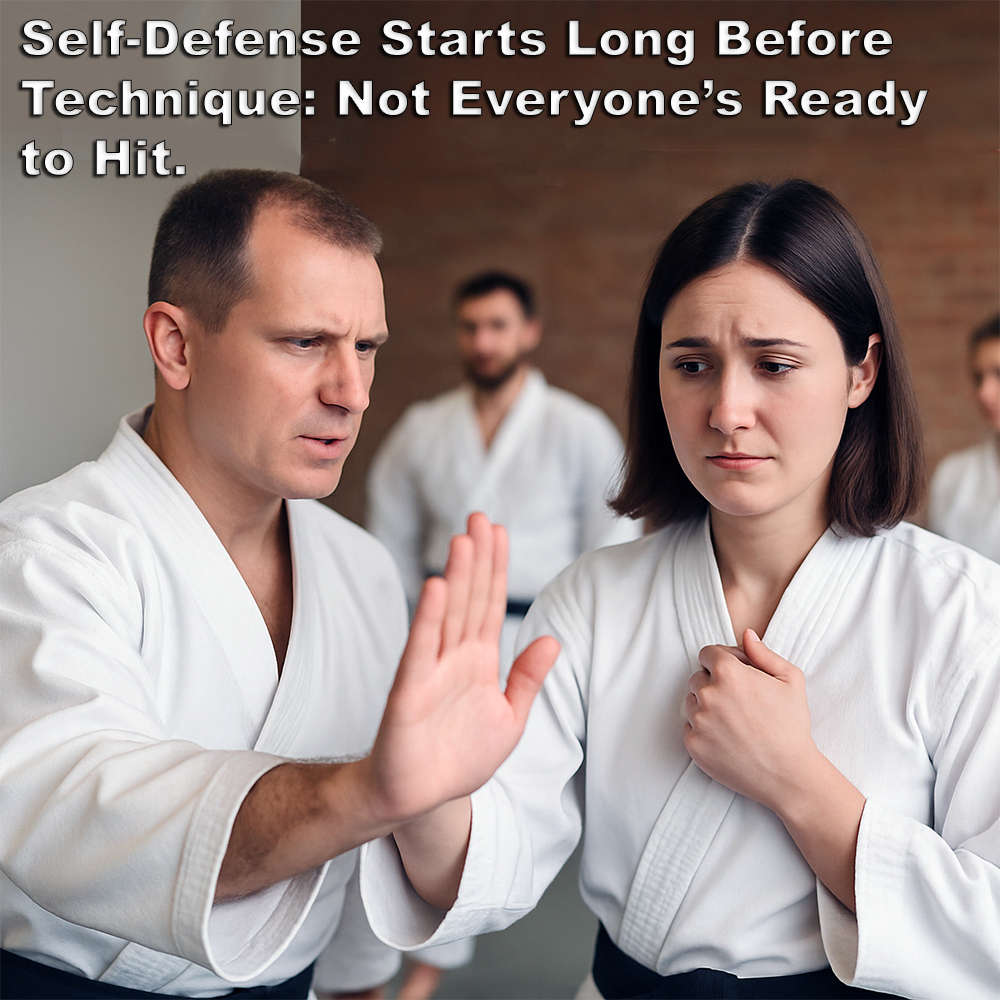
(Approx 2 minute 50 second read)
After years of writing, I’ve noticed a pattern. I share practical insights from my dojo – like helping a tired, overwhelmed mother feel safer – and inevitably, someone chimes in with, “Well, in my classes, I teach [insert technique here], and it works for me.”
.
It’s getting predictable now. And when I point out that this wasn’t the point of the article, the response is often defensive. One person said, “I’m sorry for having an opinion.”
.
A bit defensive there, I think. But that’s not an opinion. That’s deflection. That’s ego. That’s someone so convinced of the value of what they teach that they can’t bear the idea that it might not apply to everyone – especially someone who isn’t interested in fighting.
.
And let’s be honest – it wasn’t really an apology. It was passive-aggressive. A way to shut the door on further conversation without actually engaging.
.
These kinds of replies often come when someone feels their methods or authority are being questioned. They take it personally – even when the original article wasn’t about them at all.
.
I simply said, “That’s not what I’m talking about in the article.” That’s a boundary. And some instructors don’t like boundaries unless they’re the ones setting them.
.
My article was about someone who just wants to feel less vulnerable walking to her car. Or picking her child up from daycare.
.
If you read that and immediately think, “But here’s what I would teach instead”, then you need to ask yourself – are you listening to what was actually said? Or are you just waiting for your turn to speak?
.
When someone talks about fear, uncertainty, or the desire for safety, maybe the first step isn’t to show them your favorite technique. Maybe it’s to pause and ask what they need.
.
I mentioned in the article that many people are not ready to hit another human being. This is true – I’ve seen it countless times over the years.
.
One ‘instructor’ (I’ll call him that out of courtesy) said to me that when he teaches a women’s self-defense course, the first thing he asks is, “Can you hit someone?” Really? That’s your first question? What are you actually teaching?
.
And, as always, someone brings up the palm heel strike. As if swapping a punch for a palm somehow makes everything okay.
.
Let’s be honest – it’s still a technique. If all you’re offering is a better way to hit, you’re still missing everything that comes before it: context, intent, awareness, and fear management. These are the things that matter first. Because without these foundational elements, even the most perfect technique can be useless in the wrong context.
.
Self-protection isn’t about proving your method is the best. It’s about giving people something that works for them, in their world, with their fears and their limits.
.
Some of these weekend courses and short sessions sell people the idea that a handful of techniques will make them safer. They won’t.
.
Teaching people to punch, kick, or lock without understanding the reality they live in is not just irresponsible – it borders on misleading. And while I understand that many courses operate on a financial basis, taking payment for something that doesn’t actually help someone stay safe? That’s not self-defense. That’s theatre.
.
And here’s the part many instructors miss: the people walking into these courses often don’t want to learn a martial art.
.
It maybe fun for them to pretend they are suddenly invincible, but they come because they saw the word self-defense on your flyer. They want to feel safer – not perform consensual dueling in a karate-gi.
.
So yes, teach a palm heel strike instead of a punch, if you think it helps. But don’t teach it like it’s the beginning. Because the reality is – most of what someone truly needs comes long before that strike is even needed.
.
And if you can’t offer that – if your answer is always a technique, or can you hit someone – then maybe it’s time to ask yourself this question: Is that the best you can do?
.
.
Written by Adam Carter
